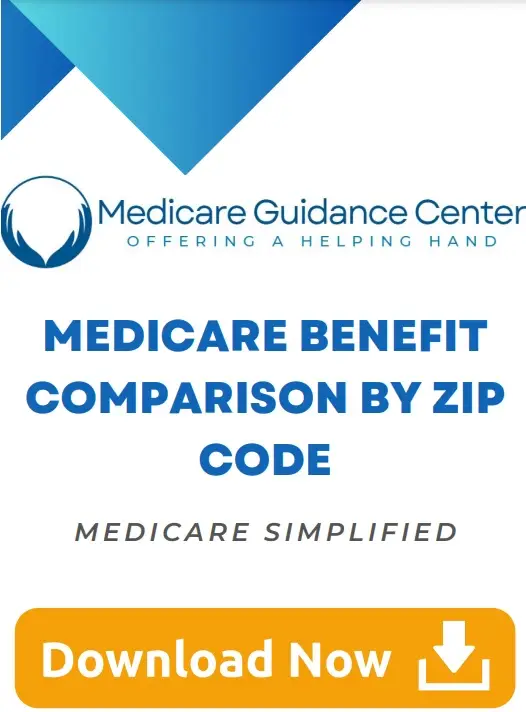Home » Arizona Medicare
5 Key Ways to Navigate Arizona Medicare in 2025
If you’re approaching age 65 or helping a loved one transition into retirement, understanding Medicare plans in Arizona can feel overwhelming. Arizona residents have access to a wide range of Medicare options, but knowing where to start is key. This guide outlines five smart ways to navigate Medicare in Arizona, while answering some of the most common questions seniors and caregivers ask:
By submitting this form, you consent to receive a link to your personalized Medicare plan comparison, services outline, and general updates via automated text messages (SMS), emails, and other electronic communications from Medicare Concepts. Your information is never sold. Please note that you are not required to provide this consent to make a purchase from us. Message and data rates may apply for SMS. You can opt out of SMS communications at any time by replying ‘STOP’ to any message and can unsubscribe from email communications by clicking the ‘unsubscribe’ link in the email
5 Key Ways to Navigate Arizona Medicare in 2025
If you’re approaching age 65 or helping a loved one transition into retirement, understanding Medicare can feel overwhelming. Arizona residents have access to a wide range of Medicare options, but knowing where to start is key. This guide outlines five smart ways to navigate Medicare in Arizona, while answering some of the most common questions seniors and caregivers ask.
1. Understand What Medicare Is and Who’s Eligible
Medicare is a federal health insurance program primarily for:
People age 65 or older
Younger individuals with certain disabilities
Individuals with End-Stage Renal Disease (ESRD) or ALS
To qualify, you generally must be a U.S. citizen or permanent legal resident living in the U.S. for at least five consecutive years. Most people become eligible at age 65 and can enroll during their Initial Enrollment Period (IEP)—a 7-month window that starts three months before your 65th birthday.
Key Difference: Medicare vs. Medicaid
While Medicare is federal health insurance mostly for seniors, Medicaid is a state and federal program offering healthcare to low-income individuals of all ages. You can have both—called “dual eligibility”—and there are special Medicare Advantage plans in Arizona designed for people with both Medicare and Medicaid.
2. Know the Different Parts of Medicare
Medicare is made up of four main parts. Here’s what they cover:
Part A (Hospital Insurance): Covers inpatient care in hospitals and skilled nursing facilities. Most people don’t pay a premium if they or a spouse paid Medicare taxes while working.
Part B (Medical Insurance): Covers doctor visits, outpatient care, preventive services, and durable medical equipment. You pay a monthly premium.
Part C (Medicare Advantage): Offered by private insurers, these plans bundle Parts A and B and often include Part D, dental, vision, hearing, and other extras.
Part D (Prescription Drug Coverage): Helps pay for the cost of prescription medications. Part D plans are offered by private companies and can be added to Original Medicare.
Many Arizonans choose between Original Medicare (Parts A and B) and Medicare Advantage (Part C), depending on coverage preferences and provider networks.
3. Compare Medicare Advantage vs. Original Medicare
Choosing between Original Medicare and Medicare Advantage is a major decision. Here’s a breakdown:
| Feature | Original Medicare | Medicare Advantage (Part C) |
|---|---|---|
| Provider Choice | See any doctor that accepts Medicare | Usually limited to network providers |
| Drug Coverage | Requires separate Part D plan | Often included |
| Extra Benefits | Limited | Often includes dental, vision, hearing, fitness, etc. |
| Referrals Needed? | No | Sometimes required |
| Monthly Cost | Typically higher with Medigap | Often lower premiums, but higher out-of-pocket costs |
If you live in Arizona and want an all-in-one plan with extra benefits, Medicare Advantage may be appealing. However, if you value nationwide provider access, Original Medicare with a Medicare Supplement (Medigap) plan might be a better fit.
4. Know When and How to Enroll in Medicare
Timing your enrollment is crucial to avoid late penalties.
Initial Enrollment Period (IEP)
Starts 3 months before your 65th birthday
Ends 3 months after your birthday month
General Enrollment Period (GEP)
January 1 to March 31
For those who missed their IEP
Coverage starts July 1, and penalties may apply
Special Enrollment Period (SEP)
If you’re still working and have group insurance, you can delay Part B without penalty and enroll later via SEP.
How to Enroll
Visit www.SSA.gov to enroll online
Call Social Security at 1-800-772-1213
Visit your local Social Security office
If you’re unsure, a local Medicare agent in Arizona can help you evaluate your options and make sure you enroll on time.
5. Use Available Resources to Reduce Medicare Plans in Arizona Costs
Medicare can be costly, but there are programs and resources available to help:
Medicare Savings Programs (MSPs)
These programs help low-income individuals pay for Part A and/or Part B premiums, deductibles, and coinsurance.
Extra Help (Low-Income Subsidy)
Helps pay for Part D prescription drug costs, including premiums, deductibles, and copays.
State Health Insurance Assistance Program (SHIP)
In Arizona, this is known as the Arizona State Health Insurance Assistance Program (AZ SHIP). It provides free, unbiased counseling to help you understand your Medicare plans in Arizona options.
Medicare Advantage Special Needs Plans (SNPs)
If you have chronic conditions or qualify for Medicaid, SNPs may offer tailored benefits and lower costs.
Frequently Asked Questions About Medicare in Arizona
Can I Have Both Medicare and Private Insurance?
Yes. Some people have retiree insurance, employer coverage, or Veterans benefits in addition to Medicare. Be sure to coordinate benefits so you avoid gaps in coverage.
Can I Change My Medicare Coverage After Enrolling?
Yes. You can change your Medicare Plans in Arizona Advantage or Part D plan during:
Annual Enrollment Period (AEP): Oct 15 – Dec 7
Medicare Advantage Open Enrollment: Jan 1 – Mar 31
Special Enrollment Periods due to life events (moving, losing coverage, etc.)



